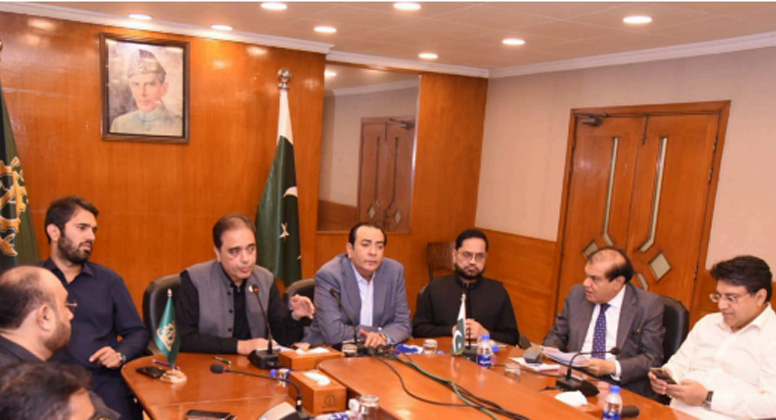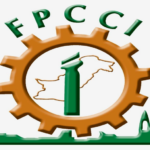
Business Community Relieved on Reversal of Harsh Budgetary Measures Atif Ikram Sheikh, President FPCCI
Karachi: Mr. Atif Ikram Sheikh, President FPCCI, has expressed his relief and gratitude over the
resolution and reversal of harsh budgetary measures announced in federal budget 2025 – 26. It is pertinent
to note that multiple enforcement measures were introduced in the budget which were gravely detrimental
for the business, industrial and trade activities in the country; and, created a widespread sense of fear as these measures were opening room for possible harassment of the business community, he added.
In that scenario, Mr. Gohar Ejaz, former caretaker Federal Minister for Commerce; Mr. S. M. Tanveer,
Patron-in-Chief, UBG and Mr. Atif Ikram Sheikh, President FPCCI, undertook the issues at the highest
level; and, held candid, detailed and consultative meetings – along with the leadership of various
chambers and associations – for their immediate resolution.
Mr. Atif Ikram Sheikh informed that FPCCI led these delegations to the Prime Minister, Mian
Muhammad Shehbaz Sharif; Field Marshal, Syed Asim Munir; Federal Minister for Finance & Revenue,
Mr. Muhammad Aurangzeb; SAPM on Revenue, Mr. Haroon Akhtar Khan; Minister of State, Mr. Bilal
Azhar Kiyani as well as to the leadership of SIFC & FBR.
President FPCCI apprised that, throughout this consultative process, numerous issues were discussed
vis-à-vis Finance Bill 2025; including, Section 37A of Sales Tax Act, Section 21(s) of Income Tax Act,
e-Invoicing, Section 8B of Sales Tax Act and Section 40B of Sales Tax Act, etc. – and, almost all issues
under discussion have been amicably resolved now.
Mr. Atif Ikram Sheikh informed that, under Section 37A of Sales Tax Act, powers were granted for unfair
and broad arrest powers to FBR officers without sufficient checks and balances. However, now after the
negotiations with the government, the arrest powers have been strictly limited to heinous nature of sales
tax fraud cases; e.g. fake or flying invoices – and, mandatory approval is required now from a
committee that is comprising commissioner and two trade body nominees; before any investigation
begins
Furthermore, Grievance Redressal and Monitoring Committee has been formed – comprising
nominees of FPCCI & relevant Chambers of Commerce and FBR officials. The committee will review
all arrests fortnightly to ensure that the due process is being followed
Mr. Atif Ikram Sheikh stated that, for Section 21(s) of Income Tax Ordinance, 50% expenditure claim was
disallowed on sales where payments were in cash exceeding Rs. 200,000/= and the insertion posed
significant operational and financial challenges for a large number of businesses.
However, now that the clarification has been issued, the cash received in the bank accounts of the sellers
from any person against invoices, would be considered as banking transactions – whether received from
NTN holders or not.
Mr. Atif Ikram Sheikh has maintained that the issues with Section 8B of the Sales Tax Act have also been
resolved. Due to FPCCI’s advocacy, FBR has clarified that it will not alter input tax restrictions or
conditions without meaningful consultation with business and trade representatives from the relevant
sector. Such consultations will be carried out through a General Order requisitioning names of sector
nominees from the relevant trade bodies before any such action is taken.
Mr. Atif Ikram Sheikh noted that the grievances in Section 40B of the Sales Tax Act have also been
addressed as a Grievance Redressal Committee is being created in the form of a 5-member
Committee; which will meet once in a fortnight to review and discuss any grievances brought by a
registered person regarding actions taken under Section 40B.
Mr. Saquib Fayyaz Magoon, SVP FPCCI, highlighted that e-invoicing has been enforced all of a sudden
and across the board – which is not possible for businesses to comply in light of the ground realities.
Therefore, FPCCI proposes that e-invoicing should be implemented in a phased manner over a period of 6
– 9 months. We have also persuaded the Sindh Government to withdraw Infrastructure Development Cess
(IDC) on solar panels to facilitate clean and alternative energy sources in the province.
Mr. Abdul Mohamin Khan, VP & Regional Chairman Sindh, FPCCI, said that the issues of Infrastructure
Development Cess (IDC) have been effectively taken up with the Sindh Government. As a result, Mr.
Mukesh Kumar Chawla, Sindh Provincial Minister for Excise, Taxation and Narcotics, has promised to
bring IDC down to 1.0% from the current 1.85% – contingent that all businesses and sectors collectively
withdraw the pending court cases against IDC.

